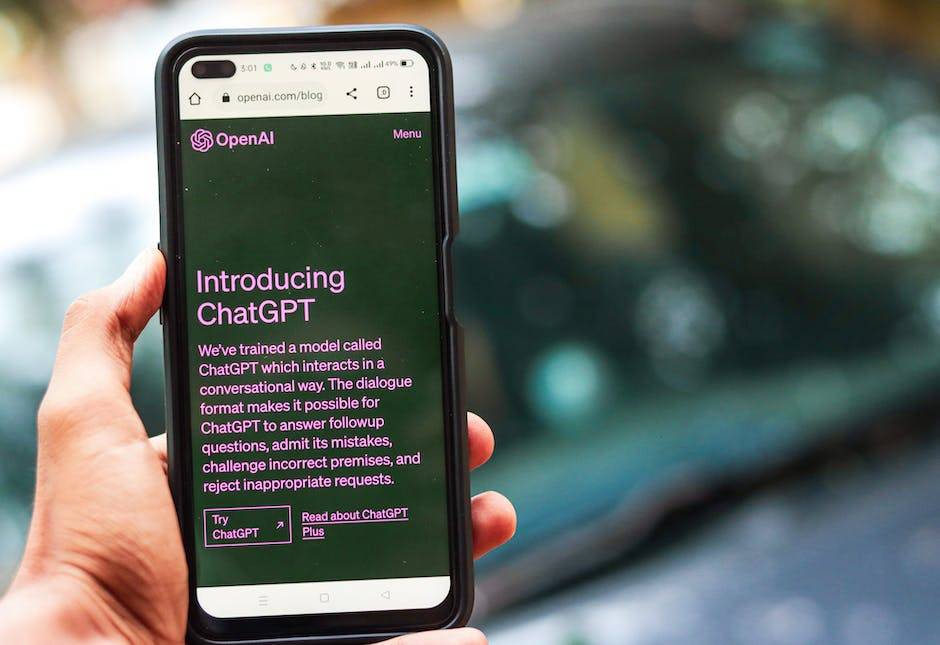Can AI Answers Questions? Artificial Intelligence (AI) has revolutionized the way we interact with technology. From voice assistants like Siri and Alexa to chatbots on websites, AI-powered digital assistants have become an integral part of our daily lives. These digital assistants are designed to answer our questions, provide recommendations, and even carry out tasks on our behalf. In this article, we will explore the future of digital assistance and how AI is transforming the way we interact with technology.
The Rise of AI-powered Digital Assistants
The first AI-powered digital assistant was introduced in 2011 by Apple, with the launch of Siri. Since then, other tech giants like Amazon, Google, and Microsoft have also developed their own digital assistants. These digital assistants use natural language processing (NLP) and machine learning algorithms to understand and respond to user queries.
The popularity of digital assistants has grown rapidly in recent years. According to a report by Juniper Research, the number of voice assistants in use is expected to reach 8 billion by 2023. This growth is driven by the increasing adoption of smart speakers and the integration of digital assistants into other devices like smartphones, TVs, and cars.
AI is entering into the Digital Assistant (DA) and Virtual Assistant (VA) space. DA and VA has evolved into AI Assistant (AIA). The rise of the AIA will give the disruptive rise on how AI Impact on Employment. Some existing jobs will be lost, and some new jobs will be created. Let’s look into some of the existing Digital Assistants.
Apple Siri
Siri is a virtual assistant developed by Apple Inc. It is available on all Apple devices including iPhones, iPads, Macs, and Apple Watches. Siri uses voice recognition technology to understand and respond to user commands and questions. With Siri, users can make calls, send messages, set reminders, and even control their smart home devices. Siri also has the ability to answer general knowledge questions, provide weather updates, and search the internet. Its proactive features suggest relevant information or actions based on the user’s habits and preferences. Overall, Siri has become an essential tool for Apple users, providing a hands-free and efficient way to interact with their devices.
Amazon Alexa
Amazon Alexa is a virtual assistant developed by Amazon that uses voice recognition technology to perform various tasks. It can answer questions, play music, set alarms, control smart home devices and much more. It is a cloud-based system that constantly learns and improves over time. With the help of its advanced AI technology, Alexa can understand natural language commands and respond in a conversational tone. Amazon Alexa has become an integral part of many households worldwide and has revolutionized the way people interact with technology.
Google Voice Assistant is a digital personal assistant developed by Google that uses artificial intelligence to carry out a variety of tasks and answer questions for users. It can help with everyday activities such as setting reminders, making phone calls, sending text messages, and playing music. It can also provide information on weather forecasts, news updates, and traffic conditions. Furthermore, it can control other smart devices in your home, such as thermostats and lights. Google Voice Assistant is designed to understand natural language and respond in a conversational manner, making it easy and convenient to use. With its wide range of capabilities and user-friendly interface, Google Voice Assistant has become an essential tool for many people to stay organized and efficient in their daily lives.
How AI-powered Digital Assistants Work
AI-powered digital assistants use a combination of NLP and machine learning algorithms to understand and respond to user queries. NLP allows the digital assistant to understand the context and intent behind the user’s query, while machine learning algorithms enable the digital assistant to learn from previous interactions and improve its responses over time.
For example, when a user asks Siri “What’s the weather like today?”, Siri uses NLP to understand that the user is asking for information about the weather. Siri then uses machine learning algorithms to access weather data and provide the user with a response.
Benefits of AI-powered Digital Assistants
AI-powered digital assistants offer several benefits to users. Firstly, they provide a more natural and intuitive way of interacting with technology. Users can simply ask a question or give a command, without having to navigate through menus or type out a query.
Secondly, digital assistants can save users time and effort by carrying out tasks on their behalf. For example, users can ask their digital assistant to set a reminder, make a phone call, or order a pizza.
Thirdly, digital assistants can provide personalized recommendations based on the user’s preferences and behavior. For example, a music streaming service can use a user’s listening history to recommend new songs or artists.
Challenges of AI-powered Digital Assistants
While AI-powered digital assistants offer many benefits, there are also several challenges that need to be addressed. One of the biggest challenges is ensuring the privacy and security of user data. Digital assistants collect a lot of personal information about users, including their voice recordings, search history, and location data. This data needs to be protected from unauthorized access and misuse.
Another challenge is ensuring the accuracy and reliability of digital assistants. While AI algorithms are becoming increasingly sophisticated, they are still prone to errors and biases. For example, a digital assistant may provide inaccurate information or make inappropriate recommendations based on biased data.
Future of AI-powered Digital Assistants
AI Assistant (AIA) is the future of AI-powered digital assistants looks promising. As AI algorithms become more advanced, AI Assistants will be able to understand and respond to more complex queries. They will also be able to carry out more complex tasks, such as booking a flight or making a hotel reservation.
In addition, AIA will become more personalized and context-aware. They will be able to understand the user’s preferences and behavior, and provide recommendations and suggestions based on this information.
AIA have transformed the way we interact with technology. They offer a more natural and intuitive way of interacting with devices, and can save users time and effort by carrying out tasks on their behalf. However, there are also challenges that need to be addressed, such as ensuring the privacy and security of user data, and ensuring the accuracy and reliability of digital assistants. The future of AI Assistants looks promising, with more advanced algorithms and personalized experiences on the horizon.


